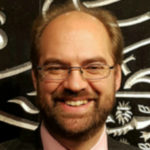UK Ambassador and Permanent Representative to the Conference on Disarmament
Part of Conference on Disarmament
2nd September 2019 Geneva, Switzerland
Disarmament blog: back to school 
As August turns to September, the traffic jams return to Geneva and the evenings start drawing in. People start returning from the beaches or mountains. It’s ‘back to school’ time.
In fact, the disarmament community has been back at work since 29 July, when the CD resumed its 2019 session. So I feel like I’ve been back at school for a month already, not least because August is the time for two important sets of experts’ meetings. I’ve got a lot out of listening to and learning from the impressive array of expertise on offer.
The first was the Meetings of Experts (MX) of the Biological Weapons Convention, looking at various scientific, technological and institutional aspects of how the Convention operates. There were presentations from national experts, researchers and international organisations such as the WHO. The UK was very active in the discussions, submitting six working papers and sponsoring a well received side event on the British Medical Journal’s Clinical Decision Support Training Initiative. Given the political challenges to making progress in the BWC (more on this in another blog), the MXs are the main way of promoting international cooperation in this important area.
The second was the Group of Governmental Experts on Emerging Technologies in the Area of Lethal Autonomous Weapons Systems (LAWS), under the auspices of the Convention on Certain Conventional Weapons. This is a hugely complex area: we spend a lot of time trying to understand developments in machine learning technology and the different military applications it might have, how the existing international legal framework might govern those uses, and what more the international community should do to develop it. Unfortunately the CCW High Contracting Parties could only agree on seven days of meetings this year, rather than 10 in 2018, so the time we had for these important discussions was somewhat squeezed. As a consequence the Group only concluded its work at 3.15am on Thursday morning. But the GGE did succeed in agreeing a recommendation to add an eleventh Guiding Principle to the ten agreed by the Group in 2018, and to give the Group a two-year perspective taking its work up to the CCW Review Conference in 2021. These are important developments, and show that, while it’s complicated and difficult, we are collectively making progress.
Finally, last week I attended the annual Conference of States Parties of the Arms Trade Treaty. This was my first ATT CSP – I didn’t travel to last year’s, in Tokyo, only a couple of weeks after I had arrived in Geneva – so it was also been a learning experience for me. In particular I listened with great interest to the experiences of national export licensing authorities and the defence industry as they implement the provisions of the treaty. I also took a lot from the discussion on gender, the main theme set this year by the Latvian Presidency. This whole month has reminded me that, although I’m a year into the job, there’s always more to learn – and that’s one of the reasons I enjoy it so much.









